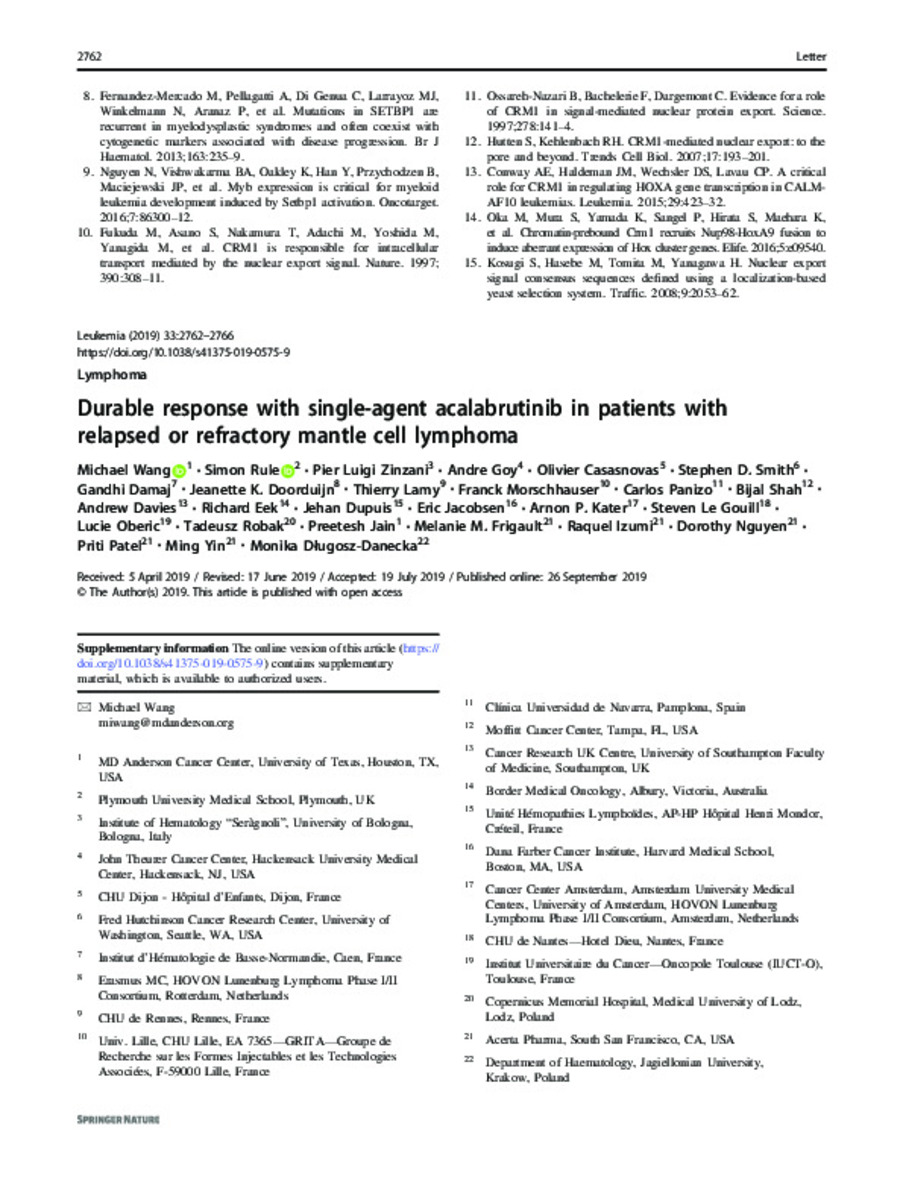Durable response with single-agent acalabrutinib in patients with relapsed or refractory mantle cell lymphoma
Palabras clave :
Bruton tyrosine kinase (BTK)
Mantle cell lymphoma (MCL)
Acalabrutinib
Clinical data
Fecha de publicación :
2019
Editorial :
Springer Science and Business Media LLC
Nota:
This article is licensed under a Creative Commons Attribution 4.0 International License
Cita:
Wang, M. (Michael); Rule, S. (Simon); Zinzani, P.L. (P.L.); et al. "Durable response with single-agent acalabrutinib in patients with relapsed or refractory mantle cell lymphoma". Leukemia. 33, 2019, 2762 - 2766
Aparece en las colecciones:
Estadísticas e impacto
0 citas en

Los ítems de Dadun están protegidos por copyright, con todos los derechos reservados, a menos que se indique lo contrario.








